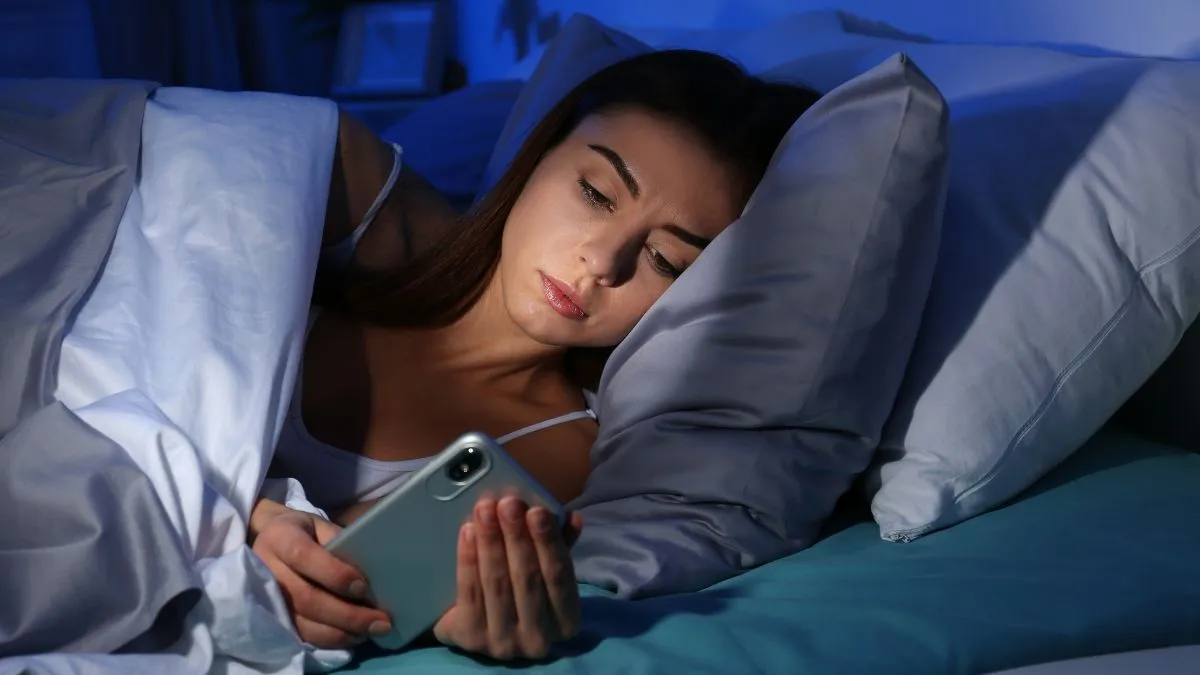- By Bornika Das
- Sat, 24 May 2025 08:37 PM (IST)
- Source:JND
In today’s hyperconnected world, the glow of screens has become an inseparable part of our daily routine, from morning alarms to bedtime scrolling. Whether it’s catching up on emails, binge-watching videos or endlessly browsing social media, digital consumption now extends far beyond work hours and into our most personal spaces, especially the bedroom. But what feels like harmless downtime is quietly disrupting our most essential biological function, which is sleep. There has been an increase in linking the rise in sleep disorders, such as insomnia and sleep apnea, to the overuse of digital devices, particularly in the hours leading up to bedtime.
Browsing through social media has become the most common pre-sleep activity. Screen time before bed can overstimulate the brain, affect the mood and can entice people to stay awake for longer. With this habit ongoing, one of the most evident epidemiological problems people are now facing is Insomnia and related issues. The blue light emitted by screens interferes with the body’s natural circadian rhythm by suppressing melatonin, the hormone responsible for making us feel sleepy. As a result, people stay awake longer, experience poor sleep quality, and wake up feeling unrested. In conversation with Jagran English, Dr Krithishree Somanna, Consultant Psychiatry, KMC Hospital, Dr B R Ambedkar Circle, Mangalore, shares how digital habits during bedtime are causing sleep-related issues and tips to handle them.
The biological clock in a healthy individual is a 24 hr sleep-wake cycle called ‘the Circadian Rhythm’. As the sun rises in the morning, our body secretes a hormone called Cortisol, which helps us to stay alert and awake. As the day goes by and the sun sets, in response to the fading sunlight, our body produces another hormone called Melatonin from the pineal glands. Melatonin induces the feeling of sleepiness. Dr Krithishree Somanna states, “The electronic devices from the screen emit ‘Blue light’ which stimulates the brain and can suppress the production of Melatonin and hence delay the process of onset of sleep even if we are engaged with any soothing activity online.” The Melatonin secretion is affected more if people are engaged with stimulating activities like playing games, reading or watching provocative materials, engaging in active conversations, which is known to cause an adrenaline rush rather than producing calm and rest.
-1748099086792.jpg)
How Blue Light From Mobile Phone Affects Sleep (Image Credits: Canva)
Dr Krithishree Somanna says, “When sleep gets disturbed and delayed on a regular basis, it is known to cause health problems like diabetes, hypertension, cholesterol issues, heart problems and also sleep apnea and mental health problems. Eventually, it is known to affect our memory and thinking also our mood.”
Tips To Manage Technology And Sleep
Maintaining a sleep routine: going to bed at the same time and waking up at the same time including weekends.
Technology curfew: switching off from social media one hour before bedtime. Make your bedroom a screen-free zone.
Avoid viewing the screen in the darkroom. Using blue light filters may be helpful.
Including relaxing habits before bedtime: listening to music, stretching, reading, meditating
Reduce your stress level: at the end of the day start unwinding from the worries and daily hassles of life. One of the effective ways is journaling.
Use your bed for sleep only: do not do any other activities like watching tv, doing assignments, eating, reading. This would train your brain to associate the bed to sleep.
Avoid caffeine, alcohol or nicotine intake before bedtime.
Short daytime naps: Avoid naps after 3 PM also not more than 30 minutes.
Regular exercise: better to exercise in the morning in the open sunlight so as to activate the circadian rhythm.
By practising a few of these healthy habits and using screen time consciously, we can enjoy the technology beneficially and get the essential sleep.
ALSO READ: Smart Tips To Achieve Restful Sleep And Healthy Lungs During Pregnancy: Know From Doctor

